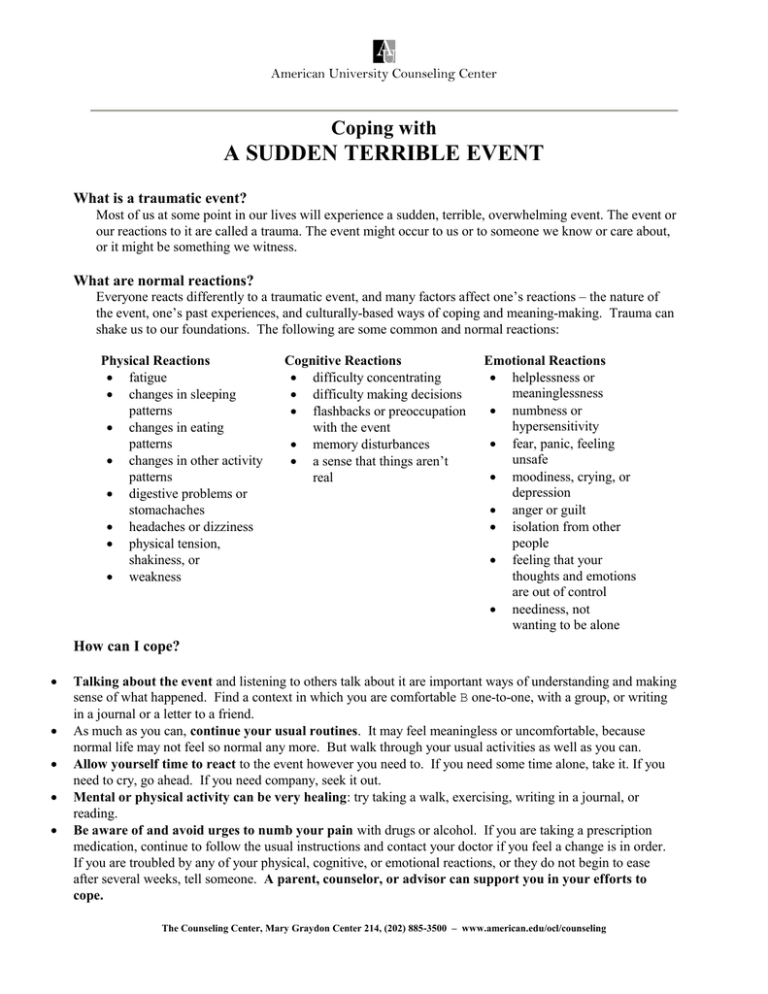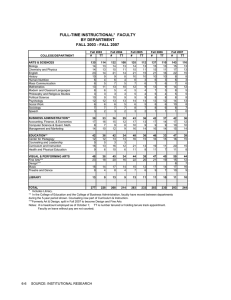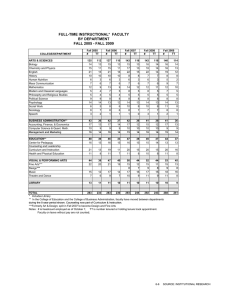A SUDDEN TERRIBLE EVENT Coping with What is a traumatic event?
advertisement

American University Counseling Center Coping with A SUDDEN TERRIBLE EVENT What is a traumatic event? Most of us at some point in our lives will experience a sudden, terrible, overwhelming event. The event or our reactions to it are called a trauma. The event might occur to us or to someone we know or care about, or it might be something we witness. What are normal reactions? Everyone reacts differently to a traumatic event, and many factors affect one’s reactions – the nature of the event, one’s past experiences, and culturally-based ways of coping and meaning-making. Trauma can shake us to our foundations. The following are some common and normal reactions: Physical Reactions fatigue changes in sleeping patterns changes in eating patterns changes in other activity patterns digestive problems or stomachaches headaches or dizziness physical tension, shakiness, or weakness Cognitive Reactions difficulty concentrating difficulty making decisions flashbacks or preoccupation with the event memory disturbances a sense that things aren’t real Emotional Reactions helplessness or meaninglessness numbness or hypersensitivity fear, panic, feeling unsafe moodiness, crying, or depression anger or guilt isolation from other people feeling that your thoughts and emotions are out of control neediness, not wanting to be alone How can I cope? Talking about the event and listening to others talk about it are important ways of understanding and making sense of what happened. Find a context in which you are comfortable B one-to-one, with a group, or writing in a journal or a letter to a friend. As much as you can, continue your usual routines. It may feel meaningless or uncomfortable, because normal life may not feel so normal any more. But walk through your usual activities as well as you can. Allow yourself time to react to the event however you need to. If you need some time alone, take it. If you need to cry, go ahead. If you need company, seek it out. Mental or physical activity can be very healing: try taking a walk, exercising, writing in a journal, or reading. Be aware of and avoid urges to numb your pain with drugs or alcohol. If you are taking a prescription medication, continue to follow the usual instructions and contact your doctor if you feel a change is in order. If you are troubled by any of your physical, cognitive, or emotional reactions, or they do not begin to ease after several weeks, tell someone. A parent, counselor, or advisor can support you in your efforts to cope. The Counseling Center, Mary Graydon Center 214, (202) 885-3500 – www.american.edu/ocl/counseling

